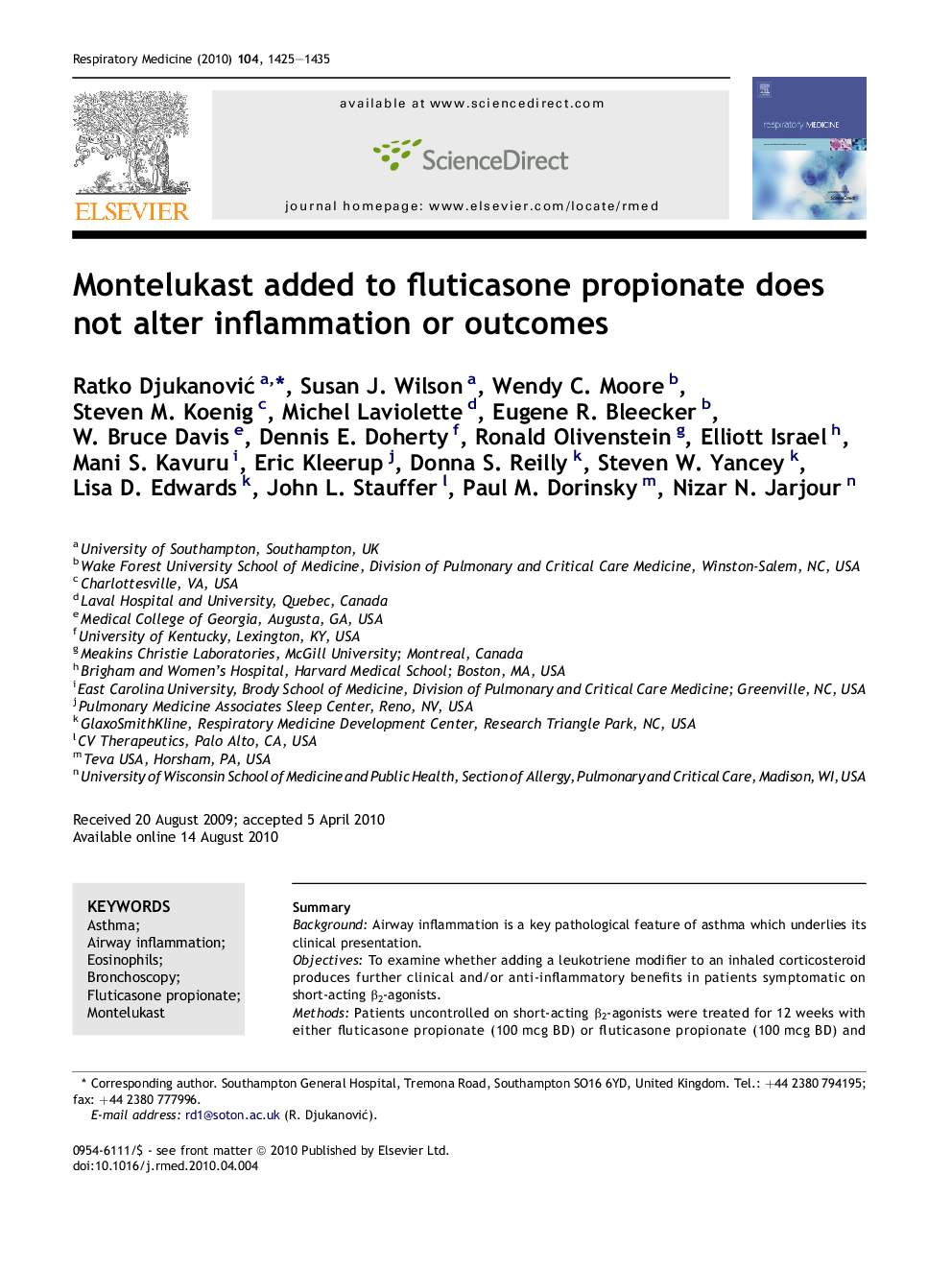| Article ID | Journal | Published Year | Pages | File Type |
|---|---|---|---|---|
| 4210506 | Respiratory Medicine | 2010 | 11 Pages |
SummaryBackgroundAirway inflammation is a key pathological feature of asthma which underlies its clinical presentation.ObjectivesTo examine whether adding a leukotriene modifier to an inhaled corticosteroid produces further clinical and/or anti-inflammatory benefits in patients symptomatic on short-acting β2-agonists.MethodsPatients uncontrolled on short-acting β2-agonists were treated for 12 weeks with either fluticasone propionate (100 mcg BD) or fluticasone propionate (100 mcg BD) and montelukast (10 mg QD) in a randomized, double-blind, parallel group study. Bronchoscopy with endobronchial biopsy and bronchoalveolar lavage (BAL) was performed before and after treatment to compare effects on airway inflammation.ResultsOf 103 subjects enrolled, 89 subjects completed treatment and 82 subjects had matched pair biopsy samples. Submucosal eosinophil counts, the primary endpoint, and asthma control improved to similar extents after both treatments (p ≤ 0.008). Both treatments significantly reduced submucosal mast cell, CD3+, CD4+, CD8+ and CD25+ cell counts. Submucosal mast cell reduction was greater in the fluticasone propionate plus montelukast group. There were no differences between treatments in BAL markers of inflammation or thickness of sub-epithelial collagen.ConclusionsLow-dose fluticasone propionate significantly improves clinical disease control and reduces airway inflammation in asthma patients uncontrolled with short-acting β2-agonists without further improvement when montelukast is added to low-dose fluticasone propionate.
